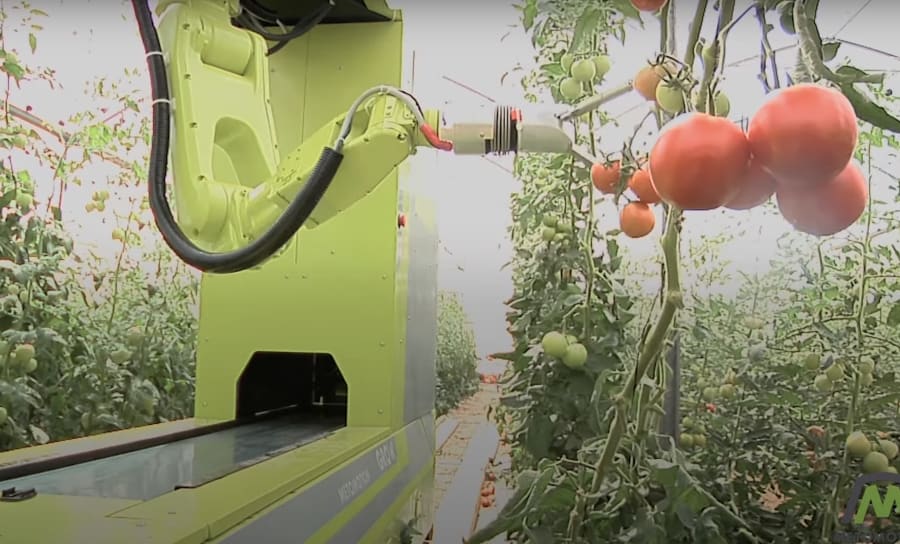Israel invents world’s first robot for picking tomatoes

The co-founder and CEO of Israeli startup MetoMotion, which focuses on developing a robotic system for labor-intensive greenhouse tasks, has invented the world’s first tomato-picking robot.
Adi Nir said he invented the robot because of the lack of workers in Israel’s agricultural sector, which employs only 1% of all Israelis in the job market. To fill the gap, farmers bring foreign workers to Israel to do the harvesting, a complicated process which drives up labor costs.
“We hear many times about farmers leaving the crops to rot because there is no one to pick them,” Nir told The Times of Israel. “Today you can’t grow tomatoes like 30 years ago. For them to be high quality and competitive in pricing, you need to do some transformation. The idea was to help farmers solve the labor shortage problem, as more and more young people are seeking more advanced occupations where they don’t need to use their hands or back.”
MetoMotion has so far raised a total of $10 million from investors such as the Israeli venture capital fund The Trendlines Group, Ridder, a Dutch greenhouse technology company and another Dutch investor.
Nir explained that artificial intelligence drives the robot, which uses two arms to pick the tomatoes on both sides of a row in high-tech greenhouses. The robots use AI-powered sensor-vision technology to help them both detect ripe tomatoes and avoid accidents as they drive down the greenhouse rows.
“We used the capabilities of artificial intelligence to develop a platform which is designed to work in a greenhouse environment, where you can produce high quality yield in different weather conditions with much less water than you do outside all year around. Unlike other robotic or industrial applications, which are characterized by more repetitive tasks, in agriculture every plant is a little bit different. So we came up with a solution based on AI capabilities to look at the plants, understand the structure, environment, how to measure the ripeness and how to decide if it’s ready,” Nir said.
He added that the robots “reduce the labor needs of harvesting by about 90% and cut production costs by about 50% by saving on manpower costs.”
According to Nir, it would take five robots about a week to harvest all the tomatoes in a 50,000 square meter [59,800 square yards] greenhouse facility.

The All Israel News Staff is a team of journalists in Israel.














